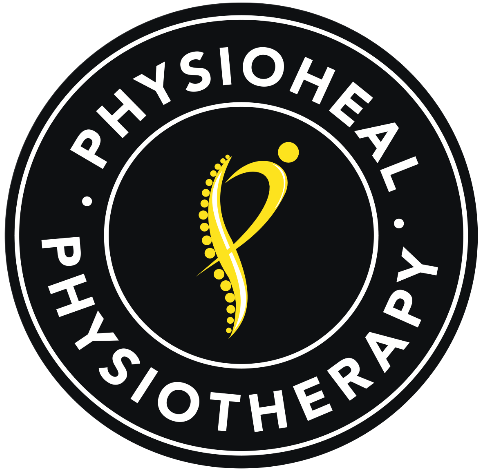We Are Open For Temporomandibular Disorder (TMD) Treatment in Gurgaon!
Fill the form and let us call you back.
[gravityform id="3" title="false" description="false"]
Effective Physiotherapy for Temporomandibular Disorder (TMD) Relief
Welcome to Physioheal Physiotherapy – Your Trusted Partner in TMD Management
Unlocking Comfort and Freedom from Temporomandibular Disorder
Temporomandibular Disorder (TMD) is an umbrella term encompassing a range of conditions affecting the temporomandibular joint and its surrounding structures. At Physioheal Physiotherapy in Gurgaon, we specialize in providing targeted solutions to alleviate the discomfort and restrictions associated with TMD, offering relief and improved quality of life.
Exploring the Complexity of TMD
TMD can arise from both intra-articular and extra-articular factors:
- Intra-Articular Causes:
- Inflammation and Structural Changes: Trauma, whiplash, grinding, and clenching can lead to inflammation and structural alterations within the joint. Synovitis and retrodiscitis are common manifestations, often resulting in pain, limited range of motion, and clicking sounds during movement.
- Internal Derangement: Direct or indirect trauma, prolonged clenching or chewing, and dental procedures can cause structural changes in the joint. Disc displacement with or without reduction can result in jaw deviation and audible clicks.
- Arthritis: Degenerative and inflammatory arthritis, such as rheumatoid arthritis, can impact the TMJ, leading to pain, crepitus, and reduced joint function.
- Hyper Mobility: Conditions like Marfan syndrome, Down Syndrome, and Cerebral Palsy can contribute to excessive anterior movement of the jaw, potentially leading to disc elongation, degeneration, and open lock.
- Extra-Articular Causes:
- Muscle Spasm: Prolonged dental procedures, stress, and bruxism can cause muscle spasm, resulting in trismus (limited mouth opening) and jaw movement restrictions.
- Cervical Postural Disorders: Poor posture and stress-related positions can exert pressure on the jaw, leading to pain and degeneration of the joint.
- Temporal Tendinopathy: Excessive temporalis muscle contraction due to bruxism can result in tenderness and swelling.
- Fractures: Trauma to the jaw can cause fractures, affecting the condylar neck and mandibular symphysis.
Comprehensive Assessment and Tailored Treatment
Our approach begins with a thorough assessment, including posture evaluation, joint palpation, range of motion testing, and bite assessment. Our treatment strategies encompass a variety of techniques:
- Non-Invasive Treatment: Gentle interventions aim to relieve inflammation, pain, and muscle spasm. Soft tissue releases, mobilization techniques, and posture correction are integral components.
- Neck and Headache Management: Addressing associated neck pain and headaches through posture correction and exercises ensures holistic relief.
- Jaw Relaxation Techniques: Teaching strategies to relax tight chewing muscles, manage stress, and enhance coordination contributes to long-term improvement.
- Dental Collaboration: Collaboration with dentists for occlusal splints can prevent compression of the TMJ and promote relaxation of jaw muscles.
- Patient Empowerment: Educating patients on posture, sleep habits, stress management, and diet modification empowers them to manage their condition effectively.
Harnessing Manual Therapy’s Potential
Research supports the effectiveness of manual therapy for TMD symptom control. Techniques such as intra-oral myofascial release, upper cervical mobilization, and manipulation contribute to symptom relief and improved mouth opening.
Partnering with Physioheal Physiotherapy for TMD Relief
Finding a TMJ physiotherapist experienced in the treatment of TMD can help change the course of symptoms and alleviate the pain and joint restriction (restricted mouth opening) that is common with this condition. Equally important is learning how to prevent recurrence, a core tenant of the physiotherapist’s approach to treating TMJ dysfunction. The physiothreapy treament includes:
- Hands-on manual therapy to restore pain-free range of motion at the TMJ, off-load the irritated TMJ disc, and enable proper gliding at the joint.
- Hands-on soft tissue massage and stretching of tight jaw and neck muscles.
- Training in jaw relaxation techniques to enable tight chewing muscles to release excessive tension.
- Dry needling or acupuncture to address any trigger points in jaw muscles and reduce pain.
- Strengthening exercises to address muscle imbalances of jaw muscles, and to correct faulty motor patterning of the jaw during opening and/or closing movements.
- Advice on sleeping positioning, chewing patterning and diet, temporarily modifying food size or texture to decrease stress to the jaw, allowing recovery.
- Postural strategies for decreasing strain on the jaw due to postural factors (addressing any positioning/ergonomic factors due to workstation set-up, forward head posture, etc).
- Treatment of the neck and back (and even the pelvis in some cases!). Joint restrictions found in these areas can adversely impact the position of the jaw and movement patterns in some individuals.
At Physioheal Physiotherapy, we’re dedicated to helping you regain comfort and freedom from TMD. Our specialized physiotherapists bring expertise and tailored solutions to your TMD management journey.
Experience Comfort and Mobility Again
If you’re seeking effective TMD treatment in Gurgaon, consult best physiotherapist in Gurgaon, Dr. Divya Gaur at Physioheal Physiotherapy. Physioheal, led by the esteemed Dr. Divya Gaur, stands as the premier destination for top-tier physiotherapy in Gurgaon. Our comprehensive approach, including personalized strategies, resources, and support, ensures your well-being. Schedule an appointment today by calling +91-9999259307, utilizing our online booking system, or requesting a phone consultation. Your path to TMD relief and improved quality of life begins with us.
